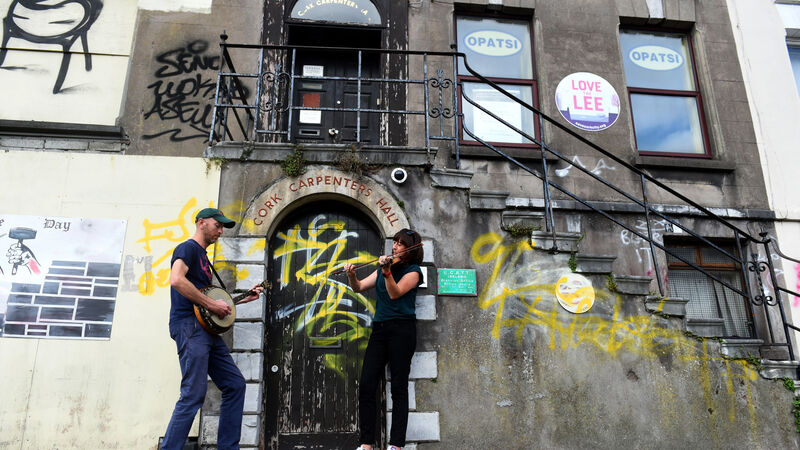Dereliction is a form of abuse and a social crime, so how can we justify it?

Vacant properties on Father Mathew Quay in Cork city. Groups are self-organising and campaigning for change, bound by an underlying belief that dereliction and vacancy can be turned into an opportunity to provide homes, places to play, create and work. Photo: Larry Cummins
Over the last six months, dereliction in Ireland has become newsworthy, it’s been hard to get through a day without its negative impacts being raised in Irish media. Conversations have emerged from all four corners of Ireland.
There’s even been coverage of #DerelictIreland as far afield as Italy and France, not a particularly good Brand Ireland look. People are not only noticing the epidemic levels of dereliction across Ireland, but they are also realising that it can be ended with a change in mindset and political will.













